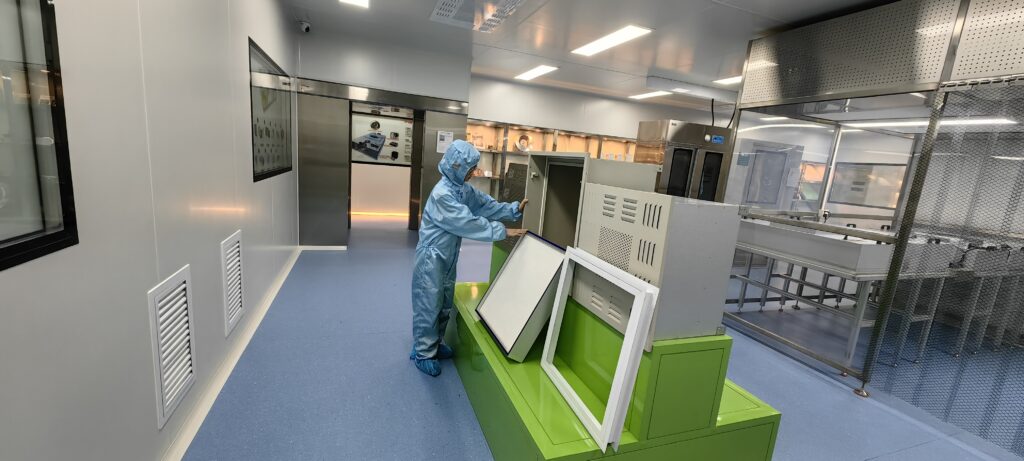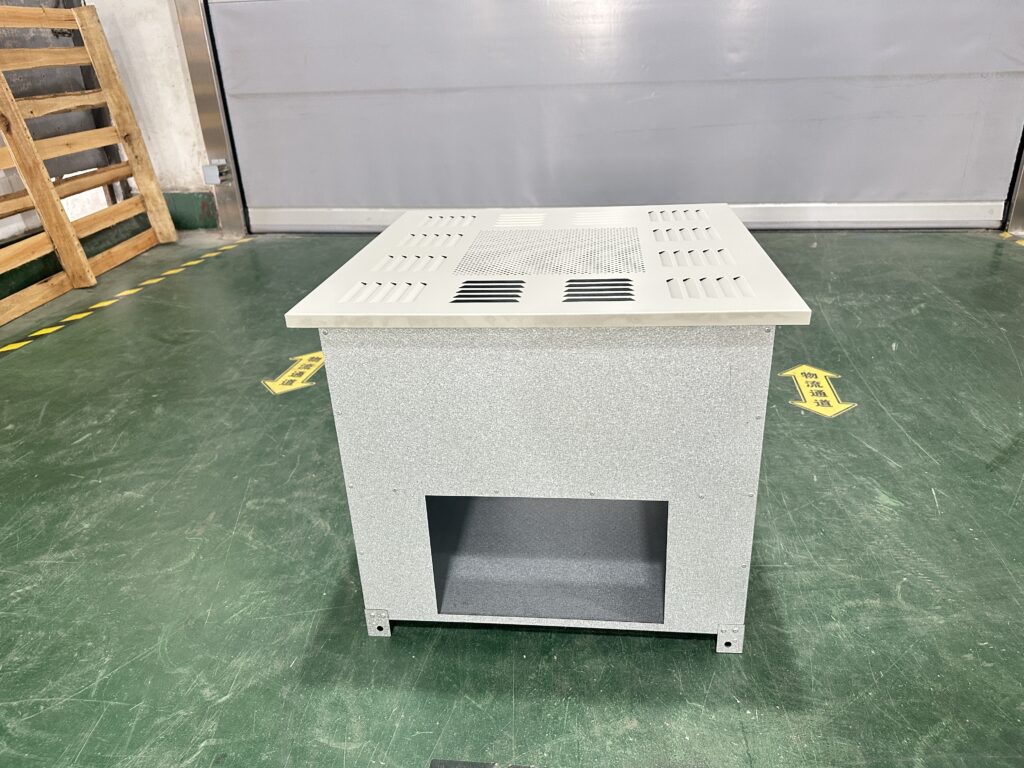Hello everyone, this is Baihong Purification. In this issue, we will talk about HEPA Diffuser vs. Liquid Trough HEPA Vent.
Recently, a customer inquired about the main differences in application scenarios and technical characteristics between HEPA Diffuser and Liquid Trough HEPA Vent. The key differences between the two are analyzed as follows:

(1) Core components
The system consists of HEPA/ULPA high-efficiency filters, static pressure boxes, and diffuser plates, which are mechanically fixed using bolts or pressure frames to ensure stable installation of the filters.
(2) Sealing characteristics
Relying on mechanical pressure to achieve sealing, using elastic sealing strips (such as rubber strips) as the sealing medium. The sealing effect is directly related to the installation process accuracy, and there is a certain risk of leakage.
(3) Airflow organization
After balancing the wind pressure in the static pressure box, the air that has been efficiently filtered is sent into the controlled space through the diffuser plate at a preset wind speed and flow direction.

2、Liquid Trough HEPA Vent
(1) Core components
The system is equipped with a special liquid tank structure between the filter frame and the box. The tank is filled with silicone gel and other special sealing liquids, which are sealed through immersion installation.
(2) Sealing characteristics
Liquid sealing medium can automatically fill assembly gaps, compensate for installation errors, and achieve a sealing effect close to zero leakage.
(3) Airflow organization
On the basis of maintaining efficient filtration, its excellent sealing performance can minimize air bypass and ensure the cleanliness of the air supply.
In short, efficient air supply outlets are suitable for conventional clean environments, while liquid tank sealing systems are designed specifically for special places with extreme requirements for air cleanliness. The essential difference between the two lies in sealing reliability and applicable cleanliness level standards.

